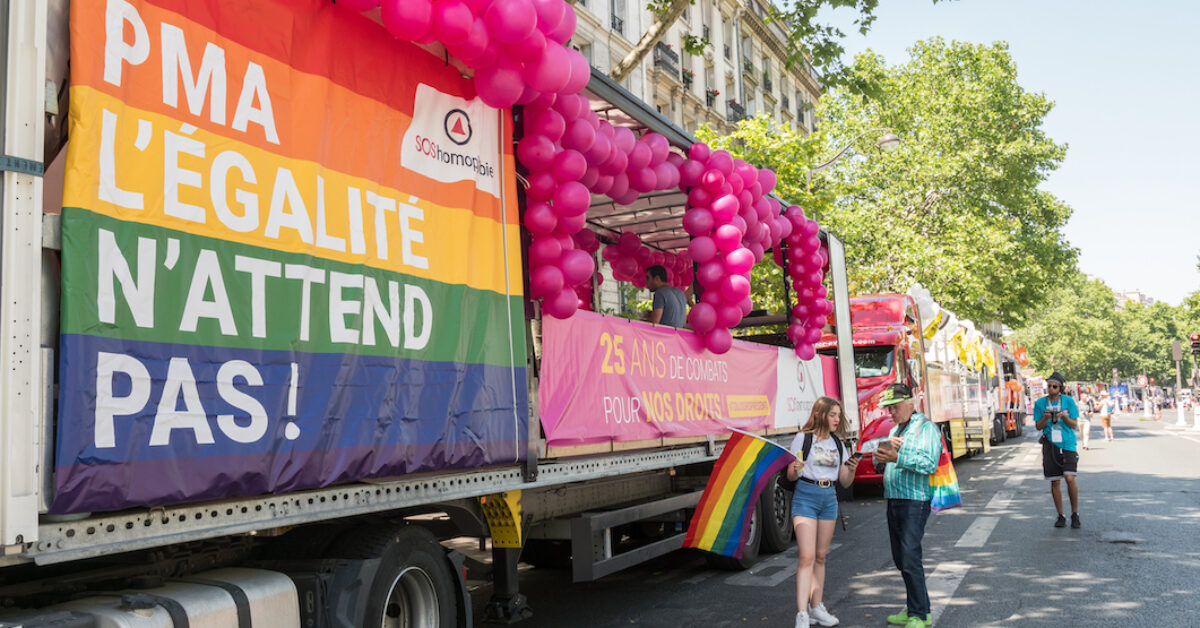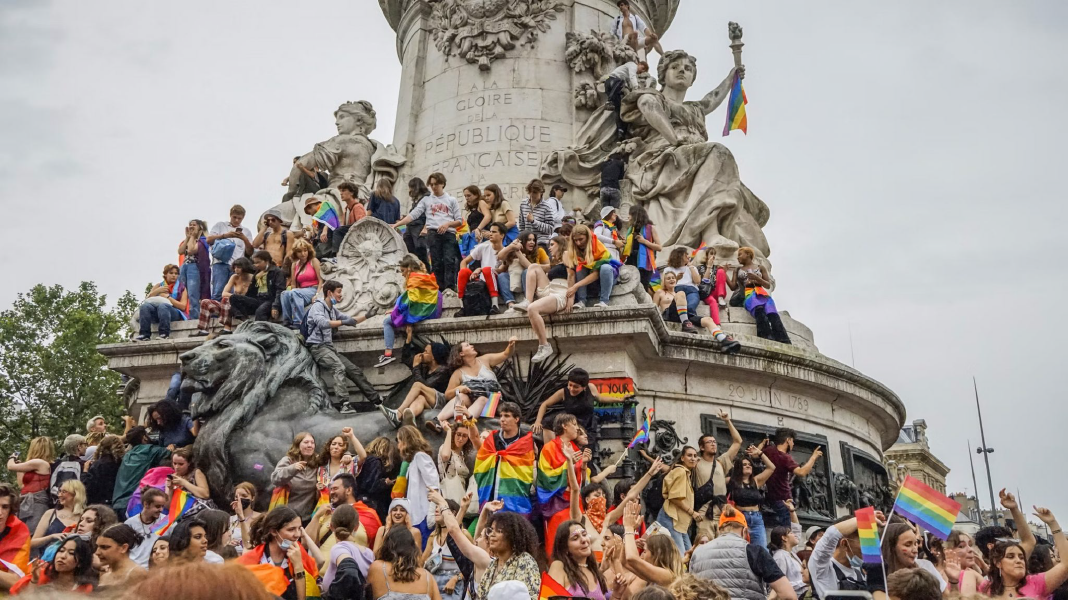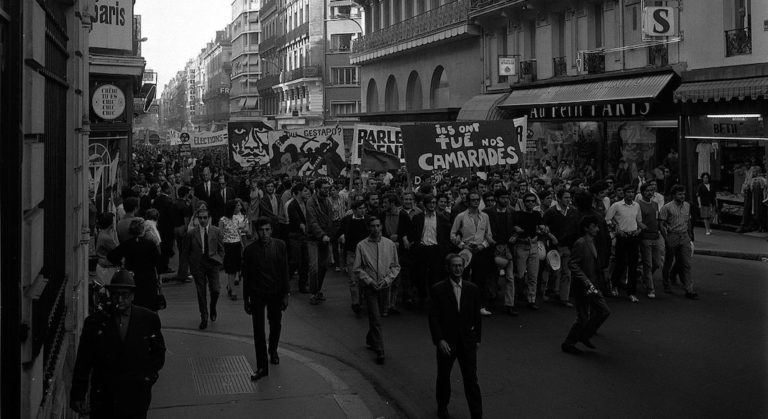Pride Month has just begun, and it can be a good time of year to take stock of just how far we’ve come in the fight for LGBTQ+ rights. France has long had a history of leniency when it comes to same sex coupling, but social norms aren’t always immediately backed by local and national legislation. That’s why it’s time to dive into the French laws that protect and support members of the gay community and the politicians who have put in the work to make them happen.
A Brief History of Gay Rights in France
https://www.instagram.com/p/BER6YZ_MM2y/?hl=en
Homosexuality was decriminalized in France in 1791, following the French Revolution, though members of the gay community were still subject to social violence and discrimination (for comparison, sodomy was a felony in the United States until 1962).
In 1999, the French government created “civil solidarity pacts,” or PACS, which provided some of the tax and legal benefits of marriage for queer couples looking to enter a civil union. Because of the ease with which they can be created and undone, however, they became extremely popular amongst heterosexual couples as well. By 2010, 94% of PACS were between heterosexual couples. Gay marriage was legalized in France in 2013 under president François Hollande, despite aggressive anti-gay marriage protests from French conservatives and religious extremists. When gay marriage was legalized, so was adoption by gay married couples, though red tape has made this aspect of the law more symbolic than practical.
In January 2020, a bill making assisted reproductive technology (including fertility treatments and IVF) available to single women and lesbians was voted into law. However, surrogacy, a common practice amongst would-be homosexual parents worldwide, is still illegal in France.
In 2010, France became the first country in the world to remove “gender identity disorder” (formerly categorized, among other things, as “transsexualism”) from its catalogue of mental disorders. Since 2017, French people have been allowed to change their gender without undergoing a medical diagnosis or gender reassignment surgery.
Another legal bar that gay people in France must jump over—though it has been lowered—is that of blood donations. In the 1980s, at the height of the HIV crisis, gay men were banned from donating blood in France. Starting in 2016, gay men were allowed to donate blood after a year of abstinence, which was shortened to 4 months, effective this year.
French Queer Politicians
In 2001, a councilwoman representing Paris’s 17th arrondissement with the French Green Party, the Franco-Brazilian activist Camille Cabral, became the first trans person elected to political office in France. She is also the founder of the non-profit PASTT – Prévention, Action, Santé, Travail pour les Transgenres (Prevention, Action, Health and Work for the Transgender Community).
Tunisian national Bertrand Delanoë, who came out of the closet in 1998, served as the mayor of Paris from 2001 until 2014. Groomed by Socialist Party leader and French president François Mitterrand, Delanoë quickly rose to prominence within the Socialist Party, and was elected to the National Assembly, the French Senate, and eventually the mayoral office, becoming the first Socialist mayor of Paris in 130 years. Delanoë made strides in favor of sustainable city transportation, introducing the Vélib bike share program, adding new bus lanes in the city center, and closing off parts of the Seine road bank in the summer (which is why we now get the “Paris Plages”). He survived an assassination attempt in 2002 by an anti-gay attacker.
An elected member of the regional council of the Greater Paris area since 2010, lawyer Caroline Mécary first built her career as one of the great legal advocates for gay rights in France. When Bègles mayor Noël Mamère defied French law in 2004 and performed the first gay marriage ceremony in France, Mécary defended both him and the couple in question in court.
In 2018, in celebration of the International Day Against Homophobia, France’s Digital Minister Mounir Mahjoubi came out via Twitter. He has assisted on the digital end with campaigns for high-ranking members of the Socialist Party, including François Hollande and Ségolène Royal.
One of the players in the battle for legalized surrogacy is Laurence Vanceunebrock-Mialon, a member of the French National Assembly who received fertility treatments in Belgium in order to conceive her first daughter, before they were legalized for lesbians in France. Her second daughter was carried by her now ex-partner, who also received fertility treatments in Belgium. Because foreign surrogacy is not legally recognized in France, Vanceunebrock-Mialon would have to adopt her second daughter in order to bear any legal connection to her. As a result, she has become an avid advocate for lesbian reproductive rights in France.
Two years ago, 55-year-old Marie Cau became the first openly transgender mayor elected in France, in the small Northern village of Tilloy-lez-Marchiennes.
A French public servant and politician, Clément Beaune served as Secretary of State for Prime Ministers Jean Castex and Élisabeth Borne from 2020 to 2022 and was recently appointed Minister Delegate for Europe. In December 2022, Beaune came out as gay and joined the Territoires de Progrès party, while remaining determined to support Polish queer communities and represent European affairs in Poland’s notorious ‘LGBT-free zones.’ In an interview with Têtu, France’s leading LGBTQ+ magazine, Clément Beaune said, “I wouldn’t want people to say I am fighting against ‘LGBT-free’ zones because I am gay. It would be insulting to say I am leading that fight for myself. However, as European affairs minister, I have an additional responsibility. I must fight for tolerance.”
Featured Image: Stock Photos from Julien_j / Shutterstock







